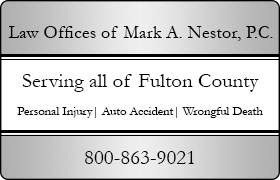Lovejoy Estate Lawyer, Georgia
Sponsored Law Firm
-
 x
x

Click For More Info:
-
Law Offices Of Mark A. Nestor, P.C.
3680 Holcomb Bridge Road Suite 150 Norcross, GA 30092» view mapPersonal Injury, Auto Accident, Wrongful Death Norcross Accident & Injury Law
Attorney Nestor has been licensed to practice in the state of Georgia since 1995. He helps clients in Accident & Injury, Estate, Lawsuit & Dispute, Traffic and Real Estate matters.
800-863-9021
Lori Ann Smith
✓ VERIFIEDEstate, Visa, Car Accident
Seasoned, highly energetic and client focused legal counsel with 20+ years of experience in a variety of areas which includes personal injury, consume... (more)
Chalcia Lovine Rainford
✓ VERIFIEDDivorce & Family Law, Bankruptcy & Debt, Divorce, Immigration, Estate
Attorney Chalcia Rainford is a native of Jamaica, West Indies, who has practiced law since 1994. Mrs. Rainford earned her J.D. from John Marshall Law ... (more)
Marc A. Avidano
Litigation, Wills & Probate, Business Organization, Personal Injury
Status: In Good Standing
Clifton Crandle Bray
Real Estate, Government, Estate, Constitutional Law
Status: In Good Standing Licensed: 50 Years
Stephanie Marianne Renee Khouri
Military & Veterans Appeals, Estate, Elder Law, Bankruptcy
Status: In Good Standing Licensed: 14 Years
George T. Brown
Lawsuit & Dispute, Estate, Divorce & Family Law, Criminal
Status: In Good Standing Licensed: 60 Years
 Mark Nestor Norcross, GA
Mark Nestor Norcross, GA AboutMark Nestor
AboutMark Nestor ServicesPractice Areas
ServicesPractice Areas


